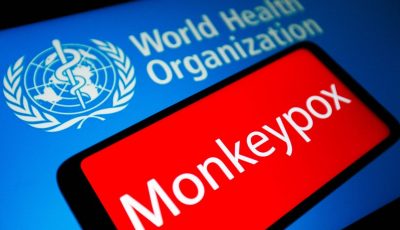The Fuss About Monkeypox

All Global Research articles can be read in 51 languages by activating the “Translate Website” drop down menu on the top banner of our home page (Desktop version).
To receive Global Research’s Daily Newsletter (selected articles), click here.
Visit and follow us on Instagram, Twitter and Facebook. Feel free to repost and share widely Global Research articles.
***
The World Health Organization has been one of the easier bodies to abuse. For parochial types, populist moaners and critics of international institutions, the WHO bore the brunt of criticisms from Donald Trump to Jair Bolsonaro. Being a key institution in identifying public health risks, it took time assessing the threat posed by SARS-CoV-2 and its disease, COVID-19.
Little time has been spent waiting for the growing threat that is monkeypox (MPXV). The WHO has now declared it a “public health emergency of international concern”. The US Centers for Disease Control and Prevention (CDC) global map charting the outbreak has the following breakdown of cases as of August 3: 26,208 in total, with 25,864 noted in countries that have not historically reported monkeypox.
On June 2, the organisation published a brochure list of dot points, noting that most individuals who contracted the viral infection would “recover fully without treatment, but in some cases, people can get seriously ill.” In a reminder that the virus is yet another example of transmission from an animal species to humans, the brochure notes that it was found in monkeys.
The symptoms resemble those of the flu, though it is characterised by a potentially nasty rash that can last from two weeks to a month. Lesions can be considerably itchy and painful. Outbreaks have been noted in forested parts of Central and West Africa, but as is the case with most infections, newsworthiness only becomes apparent if transmission moves beyond that unfortunate continent.
Just as with matters relating to war and famine, disease begins to make the newsfeeds and paper columns from Washington to Sydney once the wealthy, or at least members of wealthy societies, catch the condition or succumb. And so it follows that the disease now has an increasingly growing profile, with 80 countries not previously reporting it. From figures this month, Belgium has an impressive 482 cases, and Austria 145. Otherwise, what happens on the Dark Continent, stays there in ill-reported obscurity.
Any declaration of emergency will come with its suspicions, with the anxiety ridden clinging onto the coattails of assumption and concern. The magic of “germ panic” is being woven, and fears of authoritarian pandemic measures are never far away from the social consciousness.
Kathryn H. Jacobsen from the University of Richmond is one keen to keep calm on the whole issue. Writing in mid-July, Jacobsen took a punt: “the current evidence suggests that monkeypox is very unlikely to become a global health catastrophe even if the virus spreads and becomes pandemic [sic].”
News items about sexual activity and monkeypox are frequent, and there is a certain moral tone, as with disease generally, that underlies them. A WHO assessment from May notes four laboratory confirmed cases in the United Kingdom “reported amongst Sexual Health Services attendees presenting with vesicular rash illness in men who have sex with men (MSM).”
The ghost of accusation that made such a vicious impression with the outbreak of the HIV/Aids pandemic risks stirring, despite evidence at the time showing transmission via heterosexual sex, mother to infant and contaminated blood supplies. “Monkeypox,” write Boghuma K. Titanji and Keletso Makofane, “is not a gay disease and neither are any other infectious diseases.” The authors regret having to even state that point. “It is unfortunate that this still needs to be said, highlighting how little we have learned from previous outbreaks.”
The WHO is effectively straddling a tightrope in this field. “Anyone,” an advisory states, “who has close contact with someone who is infectious is at risk. However, given that the virus is being identified in these communities, learning about monkeypox will help ensure that as few people as possible are affected and that the outbreak can be stopped.”
While a strategy defanging homophobic narratives linking disease with disposition and conduct is a welcome thing, universalising the effect of a virus – that we are all at its mercy and will be affected equally – is an act of pious self-denial. This response to the HIV pandemic, argue Titanjii and Makofane, encouraged a “monolithic” reading of human behaviour that “missed opportunities to attend to the particular needs of sub-groups among heterosexual people.” Demography, class, and vulnerability remain inescapable facts.
The WHO advice, as thing stand, is to eschew “skin-to-skin, face-to-face and mouth-to-skin contact, including sexual contact” while cleaning hands, objects, surfaces, bedding, towels and clothes regularly. Don a mask if you cannot avoid close contact. Such warnings are all reminiscent of the global programming that took place in response to COVID-19. But complacency and reluctance have again set in.
On a more positive note, it has been found that smallpox vaccines can function as an inoculant against monkeypox, with vaccines such as ACAM2000 already approved and available in a number of countries. But as with COVID-19, the calloused warriors against the jab and the shot are again out in force, at least in a digital platform sense. For some groups, the needle retains its Satanic, totalitarian provenance, and it will be up to public health authorities to avoid slipping, as they often did, when it came to messages about how best to cope with infectious outbreaks.
*
Note to readers: Please click the share buttons above or below. Follow us on Instagram and Twitter and subscribe to our Telegram Channel. Feel free to repost and share widely Global Research articles.
Dr. Binoy Kampmark was a Commonwealth Scholar at Selwyn College, Cambridge. He currently lectures at RMIT University. He is a regular contributor to Global Research and Asia-Pacific Research. Email: [email protected]
Featured image is from OffGuardian

